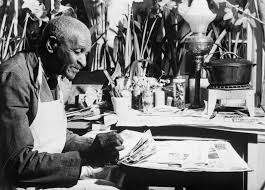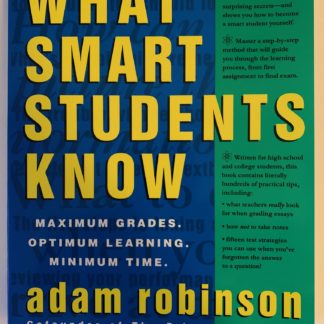An idea left unchecked can grow into a conviction.
A belief in one’s purpose can grow into professional ambition. Conversely, disbelief in one’s abilities, expressed by others, can be internalized and grow into self-doubt. In the movie “Inception“, the protagonists attempt to plant a negative thought in their target, which they hoped would lead the target to renounce his inheritance. Which ideas are being planted in the minds of our children during this time of racial crosswinds?
On one hand, the legislature of Mississippi just voted to remove the Confederate symbol from their state flag. Seeing the “stars and bars” come down might plant the thought that our nation cares about the kind of society our children will encounter as adults. On the other hand, the sheer horror of seeing George Floyd’s neck compressed by that knee communicated the devaluation of Black life. So which idea will take root and grow–social evolution that can lead to hope or devaluation that could lead to futility? We can shape that outcome.

In the book, “Young, Gifted, and Black“, Theresa Perry’s chapter offers the concept called “effort optimism”. The term describes when a student believes that their hard work will yield benefits. This kind of optimism answers the question, “education for what”?
In her discussion leading up to the concept, Perry describes how notable African Americans from previous generations like Jocelyn Elders, Maya Angelou, Haki Madhibuti, and Septima Clark overcame ramshackle school systems, devaluation from school administrators, and threats from the broader society, to fulfill their purpose. Their optimism came from notions planted by their parents and communities. Jocelyn Elders’ mother told her repeatedly that she had to get an education to “be somebody”.
The idea to “be somebody” grew into her pursuit to become an outstanding pediatrician, professor, and US Surgeon General. For others like Maya Angelou and Septima Clark, ideas of purpose were planted by the Black poets and historical figures they read about in high school. With the latter luminaries, the notions they cultivated when they were young became a conviction to consider education as a tool for liberation.
Back then to today’s youth. I became curious of what messages they may be getting, and how they would currently answer the question, “education for what“. To get at some answers, I crafted a short survey that my son Spencer offered to share with his peer group. These students are African American and are attending some of the nation’s best colleges and universities.
Academic Identity Survey
The survey asks seven questions. The request to fill it out was sent to a chat group in which my son participates and was completed by 16 participants. There aren’t enough respondents to make broad generalizations. But through their answers, I was able to determine that the respondents:
- mostly consider the African American aspect of their identity to be either first or second in priority when compared with other aspects such as their gender, family position or political beliefs;
- contemplate societal racism either most or all of the time; and
- make adjustments to their vernacular to shape how they are viewed intellectually, but
- mostly do not see their academic success to be at odds with their African American identities.
Those aggregate responses suggest then that these students may come from a similar kind of cultural and intellectual mindset as those profiled by Terry. The responses also created the frame for the key questions. The first key question was, “How would you finish this sentence? By fulfilling my academic goals I will….”
- Create more opportunities for young black women in STEM.
- Be able to impact the world from a different perspective
- Become an Imagineer, give back to my community, and help out my family.
- Lead the life I want and help others do the same.
- Achieve the hopes and dreams of my ancestors by becoming the first college graduate of my family. I will be able to use my position for change. Become a leader and image for all the other little black girls that had even the slightest idea of inferiority in their being and thoughts.
- Learn to change the outcome of every situation to my advantage if possible.
- Be making myself and my family proud.
- Be able to help spur economic development in my country (Ghana).
- Prioritize my dreams and be successful in the future.
- Be able to live comfortably and an aid to those in disenfranchised communities
- Achieve my passions and drive a change in the Community for the better
- Position myself in a way that my 12-year old self will be proud of who I’ve become. A hardworking and reliable human who does what makes them happy even when the going gets tough.
Their answers are focused both inward and outward. That is, some responses speak to changes that will occur in themselves, while most speak to external changes that will result from the future impact they can have. With each locus, however, there is an underlying optimism. Each respondent believes that something positive will result from their effort. Moreover, given that I asked these questions around the same time that Black Lives Matter protests are taking place, it suggests that they can reflect on the gravity of conflict we are all observing and yet press onward toward their goals.
How, then, can we make sure that the children we know maintain their effort optimism as well? The earlier group (Elders, Angelou) was persistently encouraged by their parents and community while they also attacked any negativity that set upon their minds as targets. Here are some of the tactics that the students identified to stay on track:
- The ability to code switch (change vernacular–potentially a future blog topic)
- Consistency; hard work; luck & God
- Overcoming racial bias, pushing myself harder to get recognized for my talent, and realizing that I am not just another “affirmative action” student.
- Time management, and gaining the courage to speak out
- Distancing myself from the wrong crowd
- Competition with fellow classmates
- Maintaining my honor and safeguarding my family’s reputation
- Patience, learning from failure, being ready to shift my perspective and expectations, and be willing to ask for help
- Organization
- (Cultivating) a good support system
- Learning from my own and others’ past mistakes
- Finding a quiet desk to study with little distraction
- Determination and hard work
- Speaking out against injustice and racism
- The only “racial” conflict I had in the past were with black people. So, in high school, I typically distanced myself from my black school mates and invested heavily towards maintaining connections with the higher achieving white and Asian demographic
- Knowing what to say and when to say it
Some of these tactics are the kind you would expect such as time management, organization, and patience. Others may not be expected, such as code switching and tact (knowing what to say and when to say it). One particularly notable response should be called out as one student who found their Black peers to be the source of academic trouble. Another response to call out is the tactic of “speaking out against racism”. For that student, and likely many others, having the opportunity to objectify and address intolerance may be what is needed–but also may not be available depending on their context.
Each of their answers then speak to the kinds of questions we could be asking the students in our lives. During those conversations we may determine what their state of mind is and moreover, which tactics will help them achieve their goals. Then, while we have their attention, let’s continue planting positive ideas about their potential–while chasing away any negativity seeking to corrupt their imagination. In the manner of the prophet Jeremiah, let’s tell our children, “even before you were formed in the womb, God created purpose for you. You were meant to be somebody!“
Last thoughts:
The purpose of this latest post was to speak to the ideas potentially transmitted by violent images being shared on traditional and social media. For a deeper look into high achieving Black students in college, please check out these articles from Professor Sharon Fries-Britt,
These articles build upon our conversation back in May.

